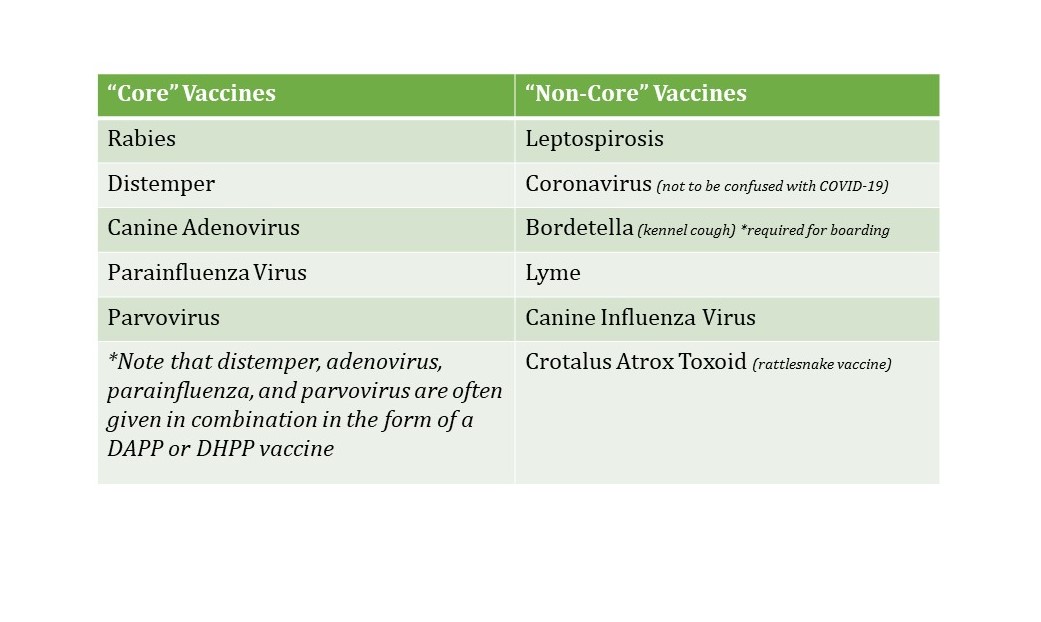New Puppy/Kitten

Getting a new puppy?
Puppy vaccinations can begin as early as 6 weeks of age, although certain vaccines cannot be started until 12 weeks of age. Multiple puppy vaccinations are required in order for the shots to be effective. A single vaccination is not effective.
Word of caution: if you get a new puppy and it is 8 weeks old and the breeder says it has all its puppy shots, your puppy will still need to continue the vaccine series in order to be fully protected. Vaccines will continue until at least 16 weeks of age, although some puppies will be older when the final vaccine is administered. Since the Rabies cannot be given until they are 12 weeks of age, the puppy you got at 8 weeks old did not get their Rabies vaccine.
Below is a list of "Core" vaccines and "Non-Core" vaccines. The rabies vaccine is required by law.
The other "core" vaccines are recommended, and all "core" vaccines are required for boarding. "Non-core" vaccines are recommended and dependent on your pet's lifestyle. An up-to-date Bordetella (kennel cough) vaccine is required to board.

Getting a new kitten?
Kitten vaccinations can begin as early as 6 weeks of age, although certain vaccines cannot be started until 9 (i.e. FeLV) or 12 weeks (i.e. Rabies) of age. Multiple kitten vaccinations are required in order for the shots to be effective. A single vaccination is not effective.
Word of caution: If you bring a new kitten (or even an older cat) into your home where you have other cats, be aware of the risks of Feline Leukemia (FeLV) and Feline Immunodeficiency Virus (Fly). The Feline Leukemia Virus can be transmitted through saliva, feces, and milk from infected cats. Therefore, kittens born to infected mother cats can be exposed to the virus. Cats at greatest risk of infection are those that may be exposed to infected cats, especially if in prolonged close contact. Feline Immunodeficiency Virus can also be transmitted in a similar manner, with the most common route of transmission involving bite wounds. Therefore, outdoor intact male cats are at greatest risk, although any cat that receives a bite from an infected carrier can get the disease.
Below is a list of "Core" vaccines and "Non-Core" vaccines. The rabies vaccine is required by law. The other "core" vaccines are recommended, and all "core" vaccines are required for boarding. "Non-core" vaccines are recommended and dependent on your pet's lifestyle.


